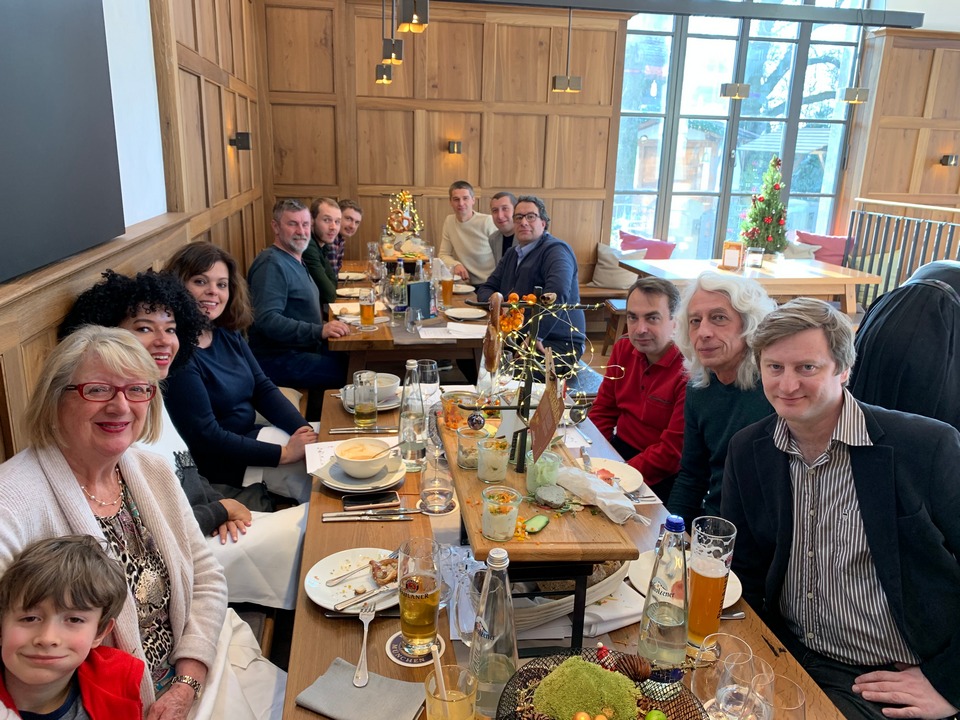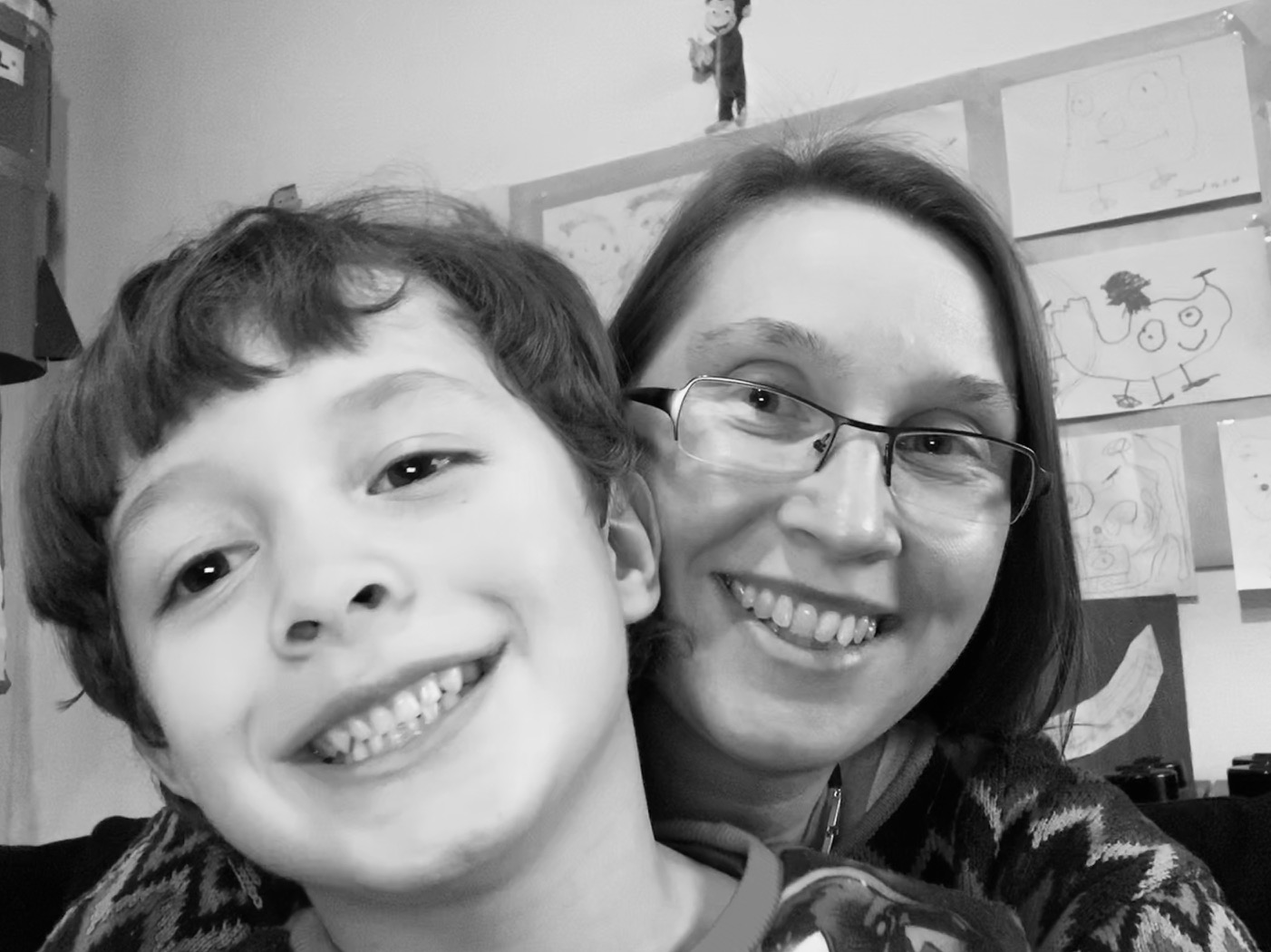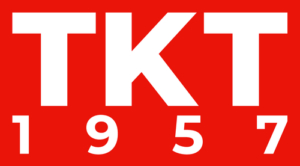Interview with Daniella Weigner, Managing Director and co-founder at Cinegy GmbH.
— Where were you born?
I was born in England and brought up near Bristol.
— What were your parents’ occupations?
My father was a facilities manager in Bristol. My mother was a simultaneous translator from English to Czech to Russian for a few years. After myself and my sibling came along, she juggled working in the home and working for the county council.
— Why Czech to Russian?
My mother is Czech, and naturalised British for some years as well. Her influence remains strong, and I have a lot of interest in the Eastern European area.
— Can you say a few words about your school years? What subject did you like?
I liked all subjects. I liked languages, English literature and language as well as the sciences. I also loved sports when I was younger.

— What university did you attend?
I did my undergraduate degree in London, at the University of London in one of the smallest schools — called the School of Slavonic and East European Studies which is now part of the University College of London (UCL). It’s a very small school of about 400 students, including postgraduates, focusing on Eastern European, Slavonic, Russian Studies as well as history, politics, and other social sciences.
— Do you understand Russian?
I can understand it a bit, but unfortunately, I didn’t study that language.
— Why did you choose that particular University and specialization?
The University of London is one of the largest collegiate universities in the United Kingdom. It has a very good reputation for all sorts of subjects from law to humanities. Some of the more famous parts of the universities are the London School of Economics and UCL, Imperial College as well as Kings College to name a few. I was very lucky to be able to go to London; studying in the capital city was something I’ve always wanted to do because I grew up in quite a small town.
So, you could say I ran away to the University. I loved my time in London. And the subject was very personal; like studying my family history. I also wanted to do something related to European studies and orientate myself towards a career in that direction. Later on, I also did a MBA at the Open University Business School, in parallel to starting Cinegy. I enjoy a challenge!

— What did you do after you graduated?
After I graduated from the University in London, I worked with a publishing company called MDI, who published CGI magazine for computer and graphics and this is where history kind of comes full circle. It was focused on computer graphics and technology; they also did a trade show that I was helping to sell space on called CGIX. This was around 1997. So, my background was mostly in sales and that was what I started to learn in my time with them. That was my first taste of sales and knowledge about technology, graphics, and the industry.
From London, I came to Munich. I was doing a lot of sales all over Europe and I was targeted at companies to advertise in our magazines and publications. I was also part of the team selling floor space for the exhibition. I became familiar with that kind of sales and then I came across a company in Munich called Lightwave Communications which did a lot of work with KVM, switches and extenders, fibre optic cables, and lots of hardware and connectors. I was offered a job as the European Sales Manager for Lightwave, selling the products to broadcast, oil and gas sectors as well as Fortune 500 companies.
— How were you able to adapt to living in Munich after living in a city like London?
The plan was to go to Germany for a year or two, have a nice job, and get a new experience. That was the plan, and I did have a lovely experience. I adapted quite well. Coming from London to any other city — perhaps except for Moscow which is much larger and busier — meant a calmer change of pace. And at that time, Munich was a lot cheaper than it is today so, it made for a different comparison.
Munich is a lovely city, much more relaxed and it has a village feel to it. Although there are fewer people are living here than in other German cities, there is a big focus on business and technology. Not for nothing are we known for our Lederhosen and Laptops. So, it makes sense for businesses in Central Europe to come to Munich and a lot of the larger companies are also relocating here. Even more so from Berlin. The infrastructure for IT is well invested in Munich compared to the capital, although that is alo changing now as well.
Do you have any hobbies you enjoy with your family?
I don’t have as much time as I used to and I’m usually very busy with my family. We do enjoy travelling when it’s possible and we go by road mostly because we are quite well positioned to drive to interesting countries and cities. Also, I enjoy reading a lot.
— Do you have children?
Yes, I have a son.
— When and how was the idea of your starting your own business borne?
That came a bit later. Cinegy came around in 2003 but the history is quite a bit older than that. My husband who is the other Co-owner and Managing Director of Cinegy was working for a company called AIST, also in Germany. AIST was well known in the prosumer and video business. Their development teams came from Moscow via Sweden to settle in Germany. He was working for them for quite some time, and it happened to be at a time when the company was seeing heavy capital investment. This was just before the bubble burst, and unfortunately, they missed their IPO window.
At that particular point, we had the chance to acquire the assets of AIST and then we reincorporated the business in 2002, taking over the development team. We had a start-up company with 30 people based in Germany with lots of ties still to Russia and other countries and most of those developers are still with Cinegy today.
We’ve got two companies really. But from a professional broadcast standpoint, we have the Cinegy brand and AIST which is well known to the prosumer space here in Germany. At some point, we had over a million subscribers to our software and this loyal following has transitioned over to our editing tools.



















